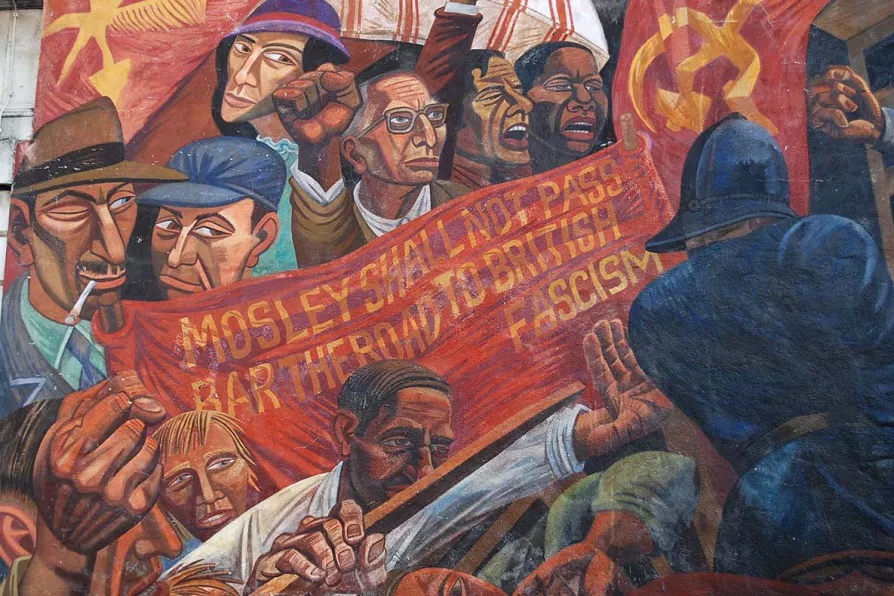RAMZY BAROUD offers six reasons why Netanyahu is prolonging conflict in the Middle East

 A mural depicting the Battle of Cable Street
[Maggie Jones / Creative Commons]
A mural depicting the Battle of Cable Street
[Maggie Jones / Creative Commons]
THE anniversary of the Battle of Cable Street 1936 — the iconic clash between fascism and anti-fascism in Britain of that decade — has added poignancy this year. It is just weeks since several places in Britain were gripped by what the mainstream press labelled “riots,” instigated by far-right activists.
Labour Prime Minister Keir Starmer spoke of “thuggery” and was especially concerned that police were attacked, though the main targets of what anti-fascist activists prefer to label “pogroms” by an insurgent far-right were long-settled Muslim communities and current asylum-seekers, including many Muslims. Yet Starmer would not let the word “Islamophobia” cross his lips.
There were attempts to set fire to hotels temporarily housing refugees, and threats made against law firms and advice centres that support asylum-seekers.

Once again Tower Hamlets is being targeted by anti-Islam campaigners, this time a revamped and radicalised version of Ukip — the far-right event is now banned by the police, but we’ll be assembling this Saturday to make sure they stay away, says JAYDEE SEAFORTH

CLAUDIA WEBBE argues that Labour gains nothing from its adoption of right-wing stances on immigration, and seems instead to be deliberately paving the way for the far right to become an established force in British politics, as it has already in Europe












